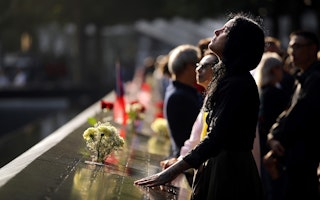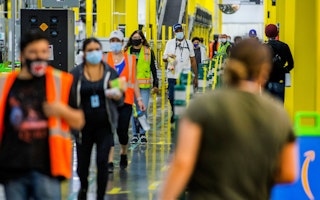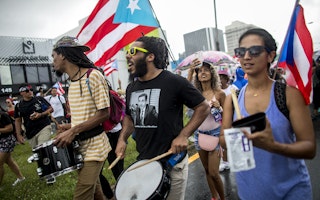Charleston’s Tragic Hour
By Nkechi Taifa

My soul is heavy. A young white man walked into the historic Emanuel African Methodist Episcopal (AME) church in Charleston, South Carolina, and opened fire, killing nine black parishioners gathered in prayer. A grandmother said she had to play dead to shield her five-year-old grandchild from slaughter. A prominent state senator, who was also a pastor, was leading Wednesday night Bible study when he was gunned down, along with an 87-year-old elder.
This massacre was an act of terrorism, pure and simple. For African Americans in this country today, it seems there is no sanctuary anywhere.
This is not a good time to be black in America. According to one analysis released this week, African Americans are killed at 12 times the rate of people in other developed countries around the world. But when has there ever been a good time to be black in America? We survived slavery and lynchings; weathered the Klan, the Birmingham church bombing and Bull Connor’s dogs; and were beaten on the Edmund Pettus Bridge for this? As Fannie Lou Hamer put it, “I’m sick and tired of being sick and tired.” My soul is heavy today.
The issue of race and racial justice must take center stage in this country. We can no longer hide from it, or sweep it under the rug. We cannot be scared to insert it into reports and commissions and legislative initiatives. We must courageously confront it, embrace it, do whatever it takes, and heal. People of African descent in the U.S. have endured hardship and tragedy far too long.
The tragedy at the Emanuel AME Church was not about one lone young white man. This is about centuries of systemic oppression, repression, and yes, terrorism.
At the Open Society Foundations, we work to combat prejudice, and to change the racial narrative in this country. We work to flush implicit bias out of the shadows, confront it, and change attitudes. We work to end the system of mass incarceration that tears so many families and communities apart, and affects black people disproportionately. We demand better policing, in the name of Michael Brown, Eric Garner, Tamir Rice, Walter Scott, Freddie Gray, and countless others. We work to make this society more inclusive, to challenge inequality of opportunity, to improve life outcomes for all men and women of color.
We need a system that repairs what is broken, a restorative system that confronts the harm done by injustice, and seeks to right those wrongs. We need South African–style truth and reconciliation. We have worked hard, but there is still so much work to do.
I write on Juneteenth, a day of profound significance for black Americans—a celebration of emancipation, a time to remember, and to mourn the ravages of slavery. The Emanuel AME church has a storied place in that history. It was founded by Denmark Vesey, mastermind of a famous slave rebellion, as a refuge for those in chains—and was burned to the ground when Vesey’s uprising was foiled.
We have come a long way since then, but as the tragedy in Charleston reminds us, we have so many miles to travel. My soul is heavy. I long for better days to come.
Until November 2018, Nkechi Taifa was the advocacy director for criminal justice at the Open Society Foundations.


